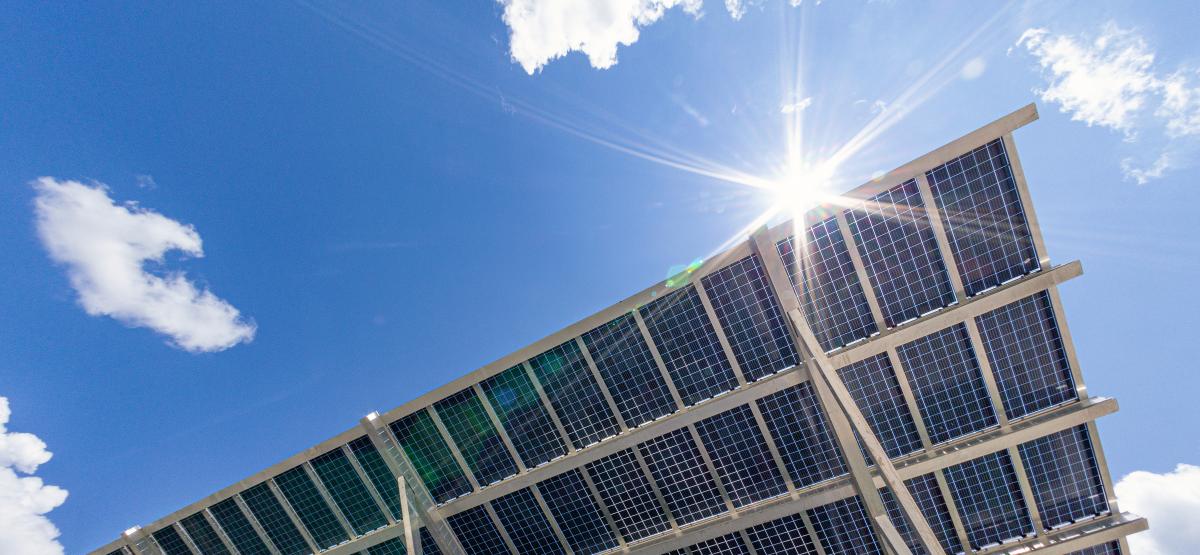We live in paradoxical times. Our world is bountiful and connected in an unprecedented way. Yet, within nations and across borders, there is a staggering inequality that prevents access to basic needs for many. This imbalance is a source of poverty and preventable suffering, both globally and at home. Wealthy regions continue to grow richer while developing nations remain excluded from sharing in the bounty.
Uneven access to resources has always been at the heart of conflict – conflict that not only destabilizes local regions but, in our interconnected world, threatens social progress. Recent events in Ukraine have laid bare our precarious position. A war between two nations has impacted access to energy worldwide and disrupted the global supply chain.
Our “just in time” economy is fragile. Reliance on traditional energy systems has led us to the point where climate change is rapidly affecting all aspects of our life. The negative effects of environmental change, like wealth, are not evenly distributed. Extreme weather events – such as floods, droughts, and heatwaves – disproportionately impact developing nations which lack the infrastructure or the wealth to mitigate the change. Once again, here is the paradox: increasing use of energy threatens our climate, and yet access to energy is required to protect vulnerable populations and raise their standard of living.
Here in Canada, we take energy for granted. We have cheap and easy access. We think of it mostly in the extremely rare event of an outage, or when far-off conflict raises the price at the pumps. We are blessed. It is only when it becomes too expensive, or when our daily routines are disrupted, that it is of concern. What we experience as a momentary inconvenience, however, is a constant daily struggle for a large percentage of the global population. Access to reliable energy underpins all aspects of our society. Lack of access makes development impossible.
As an example, think about the ways that electricity impacts our education. Electrical appliances remove a large burden of our labour, freeing up valuable time to let us participate. The internet gives us broad access to educational information and makes distance learning possible. At the most basic level, electric light has freed us from reliance on daylight and extends the time available for study when the workday is done. In Canada access to education is a given, granted to us by the availability of energy.
Education is a key pillar in eliminating poverty. Knowledge makes progress possible. If we are to address inequality and raise the quality of life for everyone worldwide it is imperative that we provide stable and affordable access to electricity. This access goes beyond education – healthcare, economic growth, community building, and mobility – all require energy. Without it, raising the standard of living is simply not possible.
Traditionally, the energy industry has been centralized and monopolistic. Development and delivery of energy has led to the accumulation of wealth and power. Energy has been developed in a way that promotes inequality and fuels conflict. There is another way. Energy can be generated locally, and the benefits can remain within local communities. Enter decentralized, renewable energy – such as wind and solar power. By investing in solar and other renewables we can build local resilience through energy independence.

Solar is now the cheapest form of electricity that has ever existed. Its deployment is rapid. It can be built anywhere. Most importantly, it is scalable – from an individual home, to a village, a factory, or grid-connected utility. For the first time in history communities have the option to achieve electrification regardless of their location or existing infrastructure. We can equalize access to energy and the benefits it provides. Plentiful, affordable renewable energy has the potential to not only mitigate climate change, but by removing barriers to development, reduce the inequality that drives conflict.
At VCT Group and Community Energy Development Co-operative we share MCC’s vision of a peaceful and prosperous world. A world where everyone has access to clean, inexpensive power and scarcity is a thing of the past. Investing is solar is an investment in peace. We can lead the way locally in generating a positive impact globally.
Together we can build a better world. For everybody.
VCT Group and Community Energy Development Co-operative are our Grandstand sponsors at this year's relief sale. We're grateful for their partnership!
